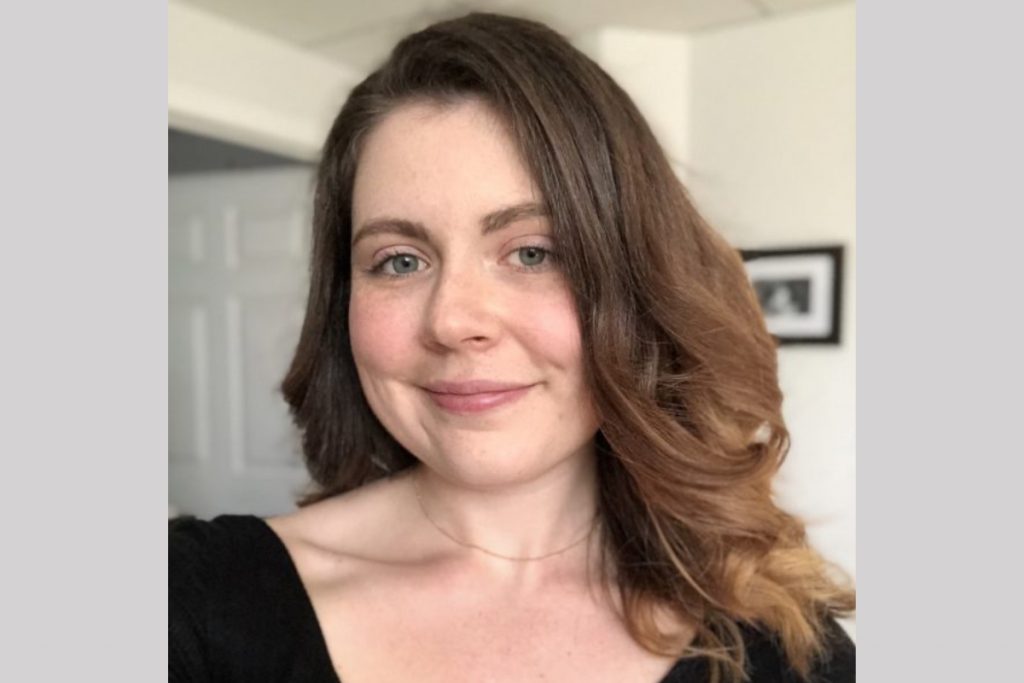We’re taking time to get to know the members of the GSA’s Early Career Scientist Committees. Join us to learn more about our 2020 early career scientist advocates.

Caitlin Simopoulos
Communications & Outreach Subcommittee
Career Stage: Postdoctoral Associate
University of Ottawa, Ontario
Research Interest
I am very interested in systems biology and the application of machine learning to all kinds of -omics data. Unlike many biologists, I don’t have a particular system or organism of interest. Instead, my passion is in developing and applying computational tools to all types of biological data for a deeper understanding of an organism or community at a systemic level. As a Postdoctoral Associate at the University of Ottawa, I work closely with scientists to develop sophisticated experimental designs for large-scale and high-throughput metaproteomic studies. My group is interested in using technology to create experimentally and computationally automated protocols to study the gut microbiome. I am particularly interested in using machine learning to both group compounds by their effects on gut microbiomes for exploratory data analysis, and to test hypotheses. For example, how do non-antibiotic drugs affect the gut microbes? Do similar side effects correlate with similar effects on the gut microbiome? To attempt to answer these questions, our current study looks at how different xenobiotics can affect different human gut microbiomes. We use metaproteomics to look deeply at how these compounds can change the function of a microbiome using an in vitro assay.
Most of my research can be boiled down to looking for patterns in gene expression data and making inferences that will be further validated with experiments. Although I have completely changed biological systems for my research as a postdoc, the computational and statistical methods have remained the same. During my PhD, I was working with transcriptomic data to explore the gene expression patterns of two natural accessions of the plant Eutrema salsugineum, a halophytic extremophile plant species. I worked to understand the molecular mechanisms behind how and why these two natural landraces cope with environmental stress in different ways. A large focus of my work was looking at the influence of long non-protein coding RNAs (lncRNAs) on the drought stress tolerance of E. salsugineum and how local adaptation of the two natural accessions may be contributing to their differential stress responses. I developed a machine learning tool for lncRNA prediction from transcriptomic data and explored the evolutionary relationships of lncRNAs in diverse plant species. I also constructed a gene expression network of E. salsugineum plants treated with two consecutive drought exposures to identify groups of genes that had impacts on particular stages of the drought treatment.
As a PhD-trained scientist, you have many career options. What career paths interest you the most?
I’ve recently realised that I love to teach as well as collaborate with other scientists. As a bioinformatician, I often rely on close collaborations to complete experiments and acquire data. I have been co-supervised by professors with diverse biological, statistical, and computational backgrounds throughout my entire academic career. For example, during my PhD, I was co-supervised by Dr. Brian Golding, a bioinformatician, and Dr. Elizabeth Weretilnyk, a plant biologist. This type of interdisciplinary research collaboration was extremely beneficial to my academic growth, and I’m interested in bringing this interdisciplinary approach to my own future research group.
I am interested in leading my own research projects and working as a primary investigator in an academic setting. However, I don’t feel tied to academia because the versatility of this research field also gives me many opportunities to work in other academic settings or industries. Computational biology/bioinformatics is an exciting and versatile field, and I’ve always been interested in working in the tech industry. Specifically, I’d love to work with a biotech startup to develop and apply computational tools to -omics data in the medical field, such as in a personalized medicine context.
In addition to your research, how else do you want to advance the scientific enterprise?
I am passionate about making science accessible to everyone, and my goal is to make computational biology more diverse and welcoming to groups who are often underrepresented in bioinformatics. I spend a lot of my time volunteering at and organizing science outreach events such as Pint of Science Canada (Ottawa) and Researchers’ Night Hamilton. I like to make science fun and approachable and am always willing to discuss science with anyone who’s interested. At my alma mater, McMaster University, I regularly volunteered to lead a plant molecular biology lab for local high school students. I loved bringing them into a real university lab and answering any questions they might have about choosing to study biology. In addition, although the initiative was interrupted by the COVID-19 pandemic, I was looking forward to working with The Pulsar Collective, a student-led group at the University of Ottawa that brings science mentors into high school classes in order to highlight women and non-binary scientists.
I’d also like to make science and computational biology less “scary” and more fun. I do this by making approachable computational tools for those without access to powerful computers or those who are uncomfortable with various programming languages. Recently I’ve begun investigation on developing web applications that help biologists complete advanced statistical analyses and create publication-ready figures. I also often create tutorials for my labs or other interested colleagues for R basics or introductory machine learning.
As a leader within the Genetics Society of America, what do you hope to accomplish?
As a member of the Communication and Outreach Subcommittee, I am excited to collaborate with other Early Career Leadership Program members to improve my written science communication. I am very comfortable talking about science but wasn’t previously aware of all the available outlets which can be used to reach a wide audience through blog posts and published articles. As an ECLP leader, I’m also in a unique position to network with other scientists at a similar career stage with similar career goals. Although I am still new to the GSA ECLP group, I have already made many connections with others around North America and I am excited to work closely with this group of scientists.
Previous leadership experience:
Local organiser – Pint of Science Canada
Lead teaching assistant for the first year biology courses – McMaster University
Collaborative research project lead – Figeys lab, University of Ottawa
Graduate student mentor































